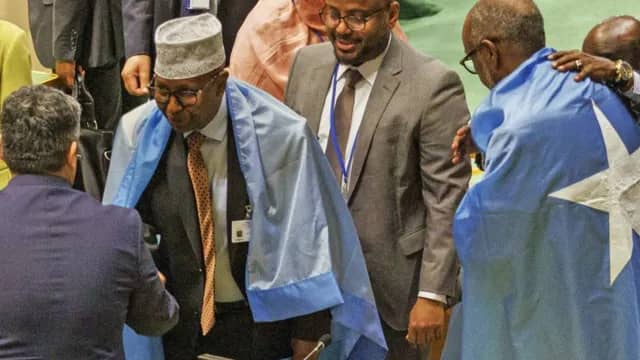The Somalia government has secured a non-permanent seat on the United Nations Security Council which has been hailed as a significant step for the worn-torn nation.
It will be the first time the country, which descended into civil war more than 30 years ago, has held the position since the 1970s.
The top table at the UN determines how the organisation should respond to conflicts around the world.
Analysts say Somalia’s battle to bring an end to its turmoil and its fight against Islamist militants will help inform the UN’s decisions.
There are 10 rotating non-permanent members on the council, along with the five permanent members – the US, the UK, France, China and Russia.
To win a seat, which carries much influence in world affairs, a country needs to secure the support of at least two-thirds of the General Assembly delegations that are voting.
Somalia was elected along with Denmark, Greece, Pakistan and Panama to serve for two years from January next year.
It bagged the seat allocated to the East Africa region unopposed and went on to win 179 votes in a secret ballot in the 193-member General Assembly.
Following the vote, Somalia’s Foreign Affairs Minister Ahmed Fiqi, who led a delegation of Somali officials to New York, said his country would now take up “its position on the global stage”.
“We stand ready to play a vital role in promoting peace and security in the world,” he said.
The ousting of Mohamed Siad Barre as Somalia’s president in 1991 sparked a decades-long civil war between rival clan warlords.
Over the years, the UN and African Union (AU) have played key roles in helping to re-establish a central authority.
Somalia has also been battling the Islamist militant group al-Shabab, which still controls large parts of the country.











